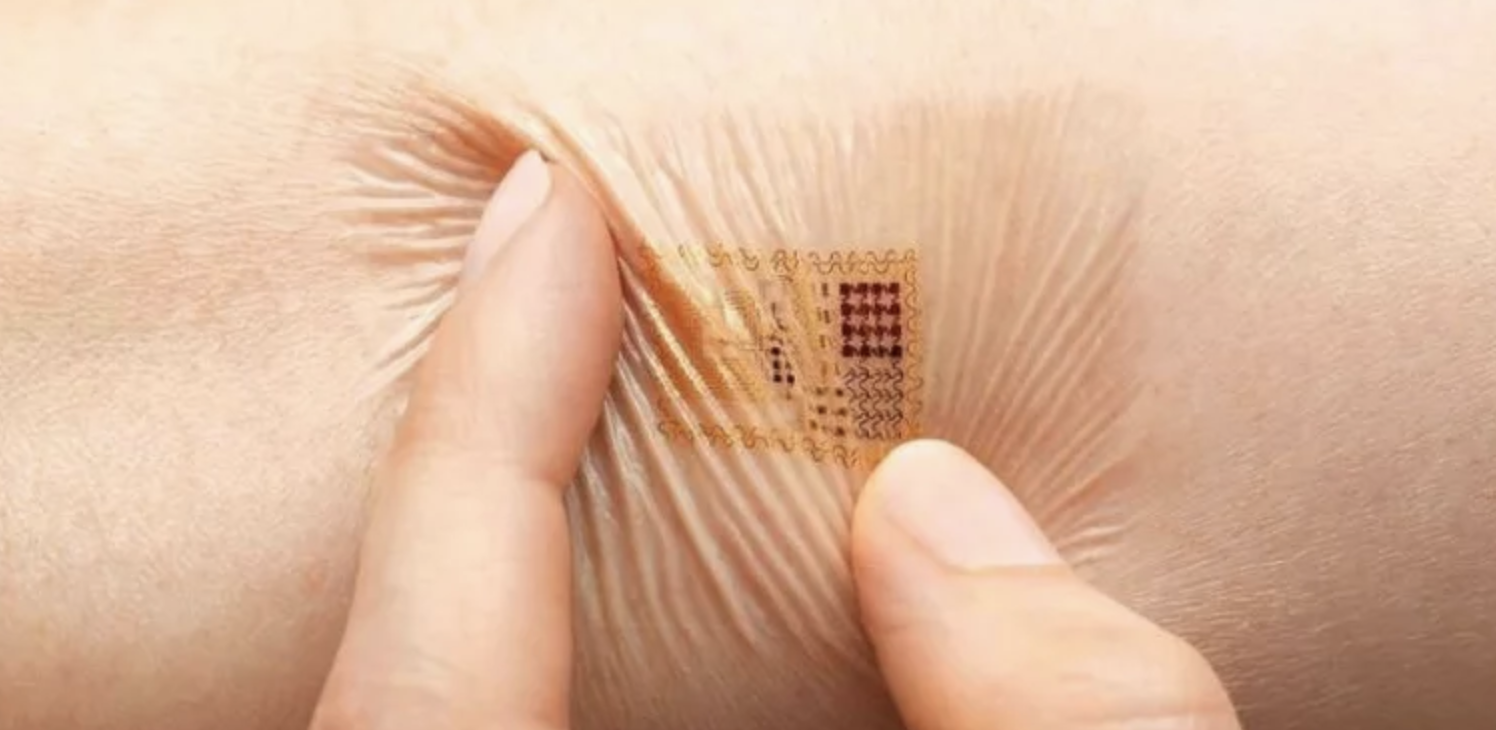Was the Covid vaccine used to inject us with microchips? Obviously not.
However, the idea that medical implants could be used for surveillance purposes isn’t so crazy. The best-known examples are the microchips subcutaneously injected into our pets. Strictly speaking, that’s a veterinary procedure, but the same technology can be used on humans.
So far, governments have held back from chipping their populations en masse. Even dictators realise just how unpopular this would be. Though we tolerate state surveillance in many forms, we draw the line at the state machine literally leaving a part of itself inside us.
A CCTV camera may be intrusive, but physically it remains outside the human body. But what if there was a technology that fudged the distinction between in and out? The monitoring of mobile phones comes close to this grey zone, but there’s another kind of device that comes a whole lot closer.
The electronic or digital tattoo is a super-thin skin patch that incorporates tiny electrodes capable of gathering medical information. It sounds like science fiction, but the technology already exists.
In an article for IEEE Spectrum, Prachi Patel reports on the development of one such device. Physically, it takes the form of one or two layers of graphene grown on copper foil and coated with acrylic. It is thin enough to stick to human skin without adhesive.
By generating and recording tiny electric currents, it enables the researcher to derive a blood pressure reading from the patient it’s attached to. At the moment, the data can only be read by attaching wires, but the plan is for the next generation of the device to be wireless. Given that the wearer can’t even feel the tattoo, he or she is unencumbered by it. Patients are able to move around normally despite the continuous monitoring of their blood pressure.
And yet, despite the beneficial applications, we need to be aware that digital tattoos could be put to more sinister uses. For instance, imagine a tattoo that could measure skin temperature and another that could detect the vibration caused by a persistent cough. Together, they could signal a diagnosis of respiratory infection. Rolled-out across an entire population, such devices could allow potentially infected individuals to be identified in real time — and swiftly located.
From that point it would be up to the authorities to decide what to do with them. A trip to a testing centre might be required — followed by self-isolation or confinement within a dedicated quarantine facility. Non-compliant tattoo wearers could find themselves electronically excluded from public buildings. I’m sure the Chinese government would love it.
It should be said that digital tattoos wear off after a few days. In that respect, they are hugely less dehumanising than the permanent tattooing of prisoners — as most notoriously practiced by the Nazis.
On the other hand, it’s the apparently benign nature of these devices that makes their coercive use in a democratic setting all-too-conceivable.











Join the discussion
Join like minded readers that support our journalism by becoming a paid subscriber
To join the discussion in the comments, become a paid subscriber.
Join like minded readers that support our journalism, read unlimited articles and enjoy other subscriber-only benefits.
Subscribe